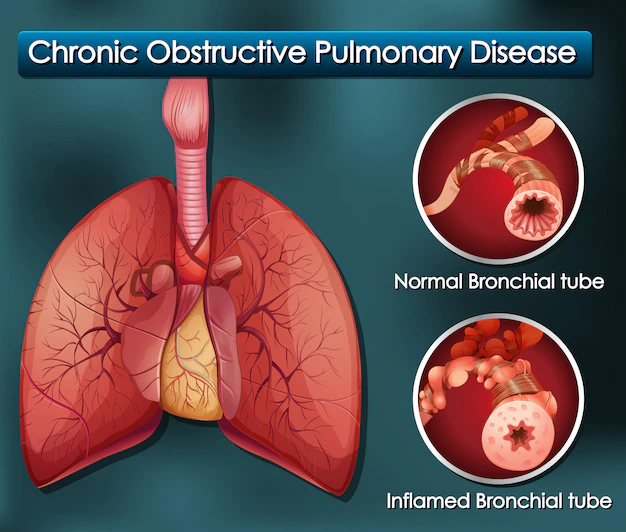Overview of Chronic Obstructive Pulmonary Disease (COPD)

Chronic Obstructive Pulmonary Disease (COPD) is a progressive respiratory disease that makes it difficult to breathe. COPD includes two main conditions: emphysema and chronic bronchitis.
Emphysema occurs when the air sacs in the lungs become damaged, making it harder to breathe out. Chronic bronchitis occurs when the lining of the airways becomes inflamed and thickened, causing a persistent cough and mucus production.
The most common cause of COPD is smoking, but it can also be caused by long-term exposure to air pollution, dust, or chemicals. Other risk factors for COPD include a history of respiratory infections, genetics, and age.
Symptoms of COPD can include shortness of breath, coughing, wheezing, chest tightness, and fatigue. These symptoms may not appear until the disease has progressed to a later stage.
There is no cure for COPD, but treatments can help to manage symptoms and improve quality of life. Treatment options may include:
- Bronchodilators: These medications help to relax the muscles around the airways, opening them up and making it easier to breathe.
- Inhaled corticosteroids: These medications help to reduce inflammation in the airways, preventing them from becoming narrowed and making it harder to breathe.
- Oxygen therapy: For individuals with severe COPD, oxygen therapy can help to improve breathing and prevent complications.
- Pulmonary rehabilitation: This is a program of exercise, breathing techniques, and education designed to help individuals with COPD manage their symptoms and improve their quality of life.
- Surgery: In some cases, surgery may be recommended to remove damaged tissue from the lungs or to reduce the size of the lungs.
Lifestyle changes can also help to manage COPD symptoms. Quitting smoking is the most important step that individuals with COPD can take to slow the progression of the disease. Avoiding exposure to air pollution, dust, and chemicals can also help to prevent symptoms from worsening.
In conclusion, COPD is a progressive respiratory disease that makes it difficult to breathe. It can be caused by smoking, air pollution, dust, or chemicals. While there is no cure for COPD, treatments can help to manage symptoms and improve quality of life. Lifestyle changes such as quitting smoking and avoiding environmental triggers can also help to slow the progression of the disease.
